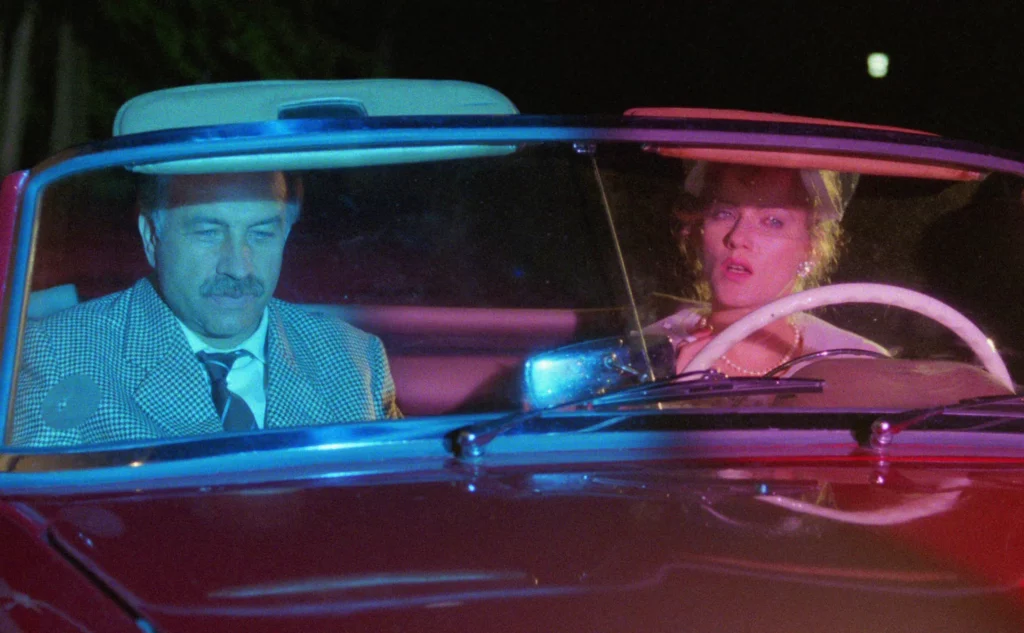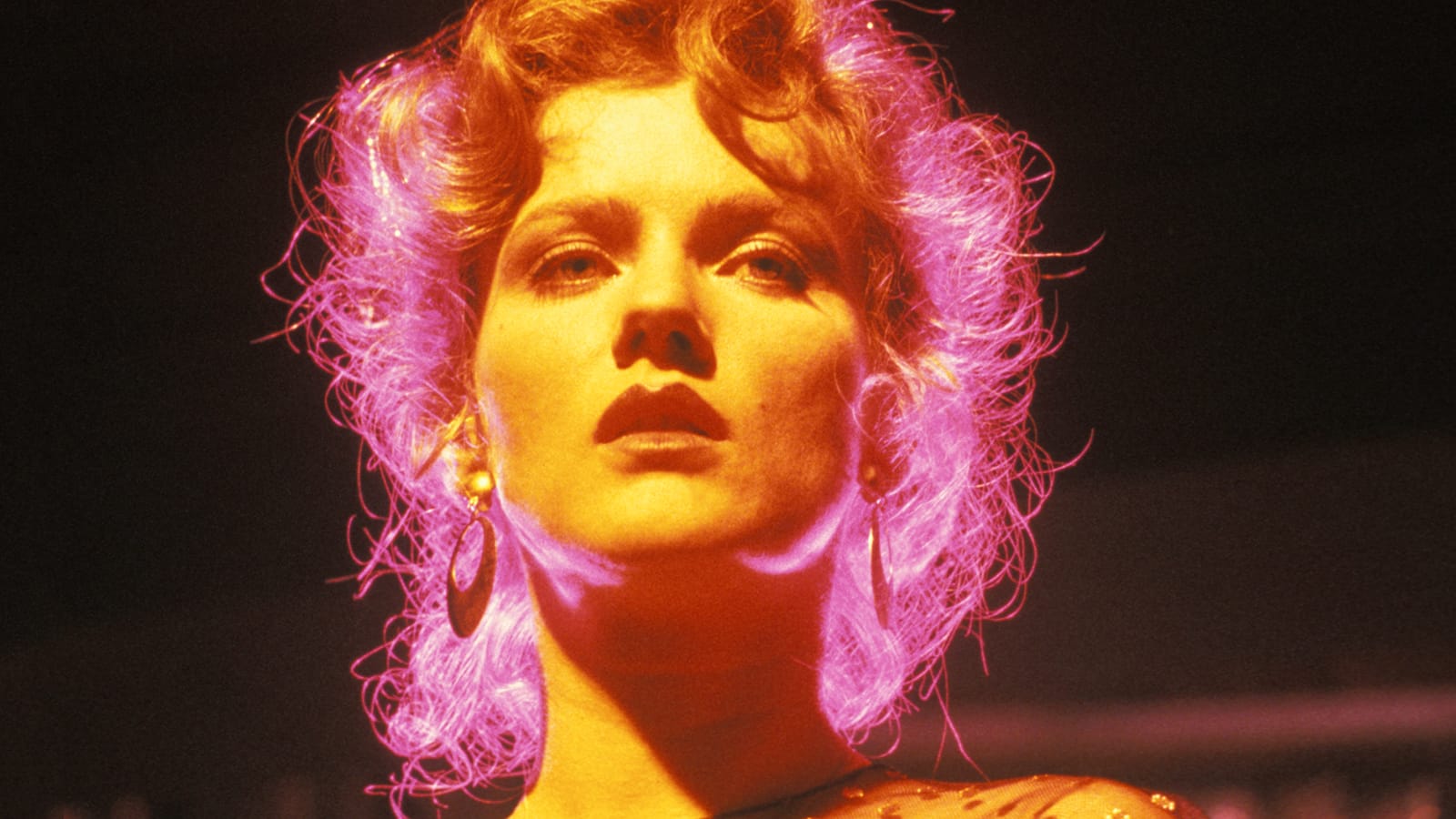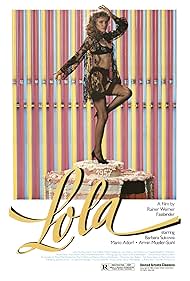Rainer Werner Fassbinder’s BRD Trilogy isn’t really meant to be a trilogy and is, in any case, in the wrong order. Take 1981’s Lola. Second of the “trilogy” to be released, it’s marked as BRD3 quite clearly in the opening titles. Veronika Voss, last of the three, was marked BRD2. Only the first one, The Marriage of Maria Braun, seems to be the right film in the right place. Here, BRD stands for Bundesrepublik Deutschland (Federal Republic of Germany).
As to the trilogy not really being a trio. It was never meant to be one, it’s just that Fassbinder died before he could make any more, in 1982. So who knows how many there might have been, especially considering Fassbinder’s astonishing work rate (around 40 films and TV series in just over 15 years).
All three films are female-focused stories set in the post-War period, with a particular emphasis on the Economic Miracle (Wirtschaftswunder) powering West Germany towards economic-giant status. All three take a slightly jaundiced view of the Miracle, asking to varying degrees how many sacrifices, and how many accommodations with its recent Nazi past, the country is making as it powers ahead economically.
Here, Fassbinder repurposes the story that drove the Marlene Dietrich breakthrough, 1930’s The Blue Angel, casting Barbara Sukowa as the nightclub singer/prostitute Lola (she was Lola Lola when Dietrich played her) and Armin Mueller-Stahl as Von Bohm, a principled city planner unaware that the woman he’s romancing is a whore. In fact she’s romancing him, though he doesn’t realise that either, and she’s doing it possibly at the behest of Schuckert (Mario Adorf), a building contractor hoping to use the Lola connection to line his pockets, though Schukert also may be wrong about that.
There is an agenda here, obviously, and a crass metaphor – sex (Lola) equals market corruption (Schuckert) – but then Fassbinder was politically not subtle. Luckily his politics sit in the background, allowing a tragedy about manipulation and self-deception to play out as old-fashioned, courtly Von Bohm is given the runaround by Lola, while Schuckert looks on from the sidelines.

Fassbinder is the archetypal crazy mixed-up delinquent who started out in radical, political theatre and imported some of its ideas and techniques when he came to film. He’s got his own distinct aesthetic, of redundant camera movements (a Brechtian thing?) and scenes navigated unconventionally – entering a scene very late, he’ll then exit with, for example, a defocused image, and move on to his next wonky negotiation.
Whatever else you think of it this is a lovely looking film, thanks to Fassbinder’s eye for mid-century modern décor (the film is set in 1957) and its bold colour coding. Lola’s world is red, and everywhere she goes the visual ambience shifts towards her end of the spectrum. The nightclub where she sings is a flaming mass of pink, orange but mostly scarlet. Against her, Von Bohm has only his blue eyes as a protection, and Fassbinder turns their colour up and down in intensity with coloured gels and tightly focused beams of light, depending on how well Von Bohm is holding out against the onslaught from the other end of the spectrum.
The acting is top notch. Barbara Sukowa made her name with Fassbinder – she starred in the behemoth Berlin Alexanderplatz (shown as one 15.5 hour movie when it came out, though more often consumed as a TV series) – and you can see why he placed his faith in her here. Smart, coquettish and able to bang out a nightclub song like she was born to it, she is essentially playing an updated Dietrich. When not in Rent-a-Nazi roles, Mueller-Stahl built his career on playing kindly gents and he’s also very good as the city functionary too smart and principled to get caught in a honey trap. Handsome, solid Mario Adorf, as adept at playing brutes as rakish charmers, is a bit of both here, as the brothel-owning Mr Big of city building.
It’s the acting and the visual style of it that make it still worth watching. The political-satirical element not so much. But then that is often the case with Fassbinder, who made his reputation as one kind of film-maker but continues to be rated for quite different reasons, possibly ones he’d have despised.
Lola (as part of the BRD Trilogy) – Watch it/buy it at Amazon
I am an Amazon affiliate
© Steve Morrissey 2024

